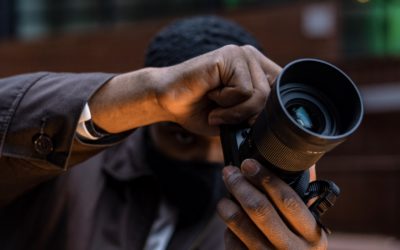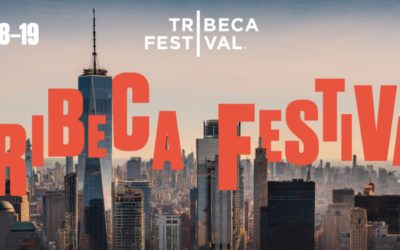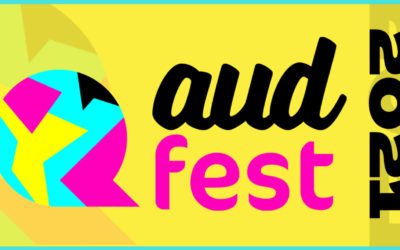The Big Sky Documentary Film Festival is the premier venue for non-fiction film in the American West. For the last six years, BSDFF has hosted a pivotal event called DocShop, a five-day crash course on documentary filmmaking.
This year’s DocShop focus is distribution, but filmmakers will leave equipped with knowledge on all aspects of the filmmaking process. From crowdfunding or grant writing for a new project, to editing, scoring and the challenges of adventure filmmaking, the Doc Shop covers many topics for filmmakers. A variety of panels featuring industry veterans will help filmmakers choose a VOD service, discover the perils and rewards of independent publishing, and talk to panelists in one-on-one discussions for specific advice on the distribution process.
DocShop also culminates with the 2015 Big Sky Pitch, an opportunity for filmmakers to present their work-in-progress clips and sizzle reels to a panel of industry giants for feedback, advice, and possibly even funding and distribution.
I met with DocShop manger Eva Cloud to discuss the history of DocShop and this year’s highlight events.
DocShop is held during BSDFF from February 9-13. The festival itself runs from February 6-16 in Missoula, Montana.
Can you give me a brief history of BSDFF’s DocShop?
It began in 2009, when Richard Saiz from ITVS offered to do a workshop listening to pitches of works-in-progress. It was a huge success. In our world of ever-changing rules and technology, professionals need to keep retraining themselves, and DocShop is a way to incorporate that into the festival. Our festival focuses on the filmmaker — connecting them with the issues that their films reflect, creating interactions with the Montana community, and trying to offer a well-rounded festival experience of networking, filmgoing & education. The addition of DocShop is a great fit for our kind of festival.
This year DocShop is focusing on Distribution. How big of a role does distribution play?
Thinking about distribution is often pushed to the side. You plan for the festival circuit and some kind of distribution after that. In reality, distribution has everything to do with people actually seeing your work and it requires a great deal of thought and planning. Since we are a festival that fits into that potential distribution plan, we are excited to have distribution as a DocShop theme. Next year we’re planning to focus on films for social change, and how media is being used in activist movements.
How did the distribution idea come about?
When you’re working in independent film, and you come up with this fantastic idea for a film, you make it happen with funding, but often you come to a point when you’ve put all this work into the film and then you have the issue of how to get people to see it. It’s a really big issue, so that’s how the idea came about to focus on distribution this year.
We bring a lot of really talented and influential professionals to the festival and there’s a lot to be gained from their presence. Although the focus this year is distribution, we are still covering a variety of topics. We have panels and workshops on a variety of subjects.
This year DocShop is covering everything from editing, online distribution, distributing your own film, to the legal side of distribution, and how music can play into your distribution plan.
How does the DocShop’s culminating event, the Big Sky Pitch Session work?
Each pitch is 20 minutes long, which includes the filmmakers’ reel, pitch, and the comments and questions from the judges to the filmmakers. As a journalism student last year, the pitch session astounded me. It’s really a dream come true to sit in a room with four industry executives waiting to hear your ideas. It’s a fantastic opportunity especially for local filmmakers, although most of our participants are out of state. And it’s fairly inexpensive, especially when you consider the industry professionals that you have at your fingertips.
Filmmakers give them the best version of their film and can potentially walk away with an offer. I think that is the most exciting aspect. Every year in the past at least one panelist has walked away from the pitch session with a deal and we expect this year to be no different.
Who are some of the most notable panelists this year?
We’re really excited about all three of the judges that we’ll have at the pitch session – Alexandra Hannibal of Tribeca Doc Funds, Noland Walker of ITVS, and Niki Heyman of POV.
Alexandra Hannibal is giving a workshop on “Grants That Work” as well, and coming from someone who has worked on an independent film, is really exciting to me. There are a lot of grants out there, but there are a lot of people bidding for all of them. It’s really hard to know which grants fit your film the best. It’s a really practical thing that a lot of filmmakers who I have talked to and are going to be here for the pitch session are excited about. You can never learn too much about writing grants that people will be excited about.
Peter Broderick of Paradigm Consulting is a keynote speaker. He is a mastermind of distribution and he has had a lot of success with low-budget films. He has worked with quite a few notable Hollywood directors, so he will be giving our keynote address as well as a workshop on distribution, which is very exciting. Several filmmakers will give him a nuts-and-bolts pitch of existing films during his workshop, and he will give them what he believes will be their best bet for distribution.
Aaron Wickenden on Friday is giving an editing workshop that we’re really excited about as well. I don’t know if you’ve heard of the documentary Finding Vivian Maier, but he was the editor of and additional camera for this film. He is also the producer and cinematographer for multi-media content on The New Yorker website. Wickenden also has a film in the festival this year, Almost There.
Can you share a DocShop success story?
I do know that several of the pitches have ended up premiering and winning Big Sky Awards. The Big Sky award is granted to the best film depicting the American West. Last year, Uranium Drive-In, was a Big Sky Award Winning Film that started out as a pitch. This year the film Top Spin started out as a pitch at DocShop and is up for best feature.
Does the demographic of the DocShop encompass mainly filmmakers and students?
The participants are national and international filmmakers and industry professionals. Since we bring them to Missoula, we want students to take advantage of their presence at BSDFF. With The University of Montana sponsoring DocShop this year, we have a lot more of our panels and workshops on campus and hope to bring more students into the process. We’re also partnering some of our panels and workshops with The Journalism School, Media Arts Department and The Business School.
What would you say are the highlight events of DocShop?
Number one is the Big Sky Pitch Session. But you should also definitely check out Grants That Work; Aaron Wickenden’s Editing Workshop; The Cannon Workshop: Capturing and Displaying the Best Possible Image; BC Campbell’s workshop, The Music of Chinatown; Hunter Weeks and Tracy Rector’s workshop, Distributing Your Own Film, and the interactive workshop See Your Distribution Future.
For a full list of DocShop Events, visit their page here.
The Audience Awards is film’s social network connecting audiences to films, filmmakers and film festivals. The Audience Awards hosts short film competitions where the audience chooses the best films.







